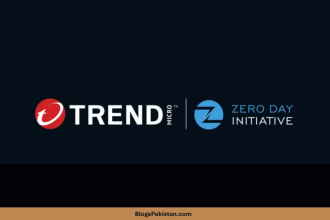In a plot of Stream twist worthy of HBO’s own shows, Warner Bros Discovery—the media mammoth behind HBO Max and CNN—just announced a big fat corporate breakup. No, there’s no drama involving backstabbing CEOs (yet), but it’s definitely a move that has the media world buzzing louder than a Pakistani uncle at a wedding.
By mid-2026, Warner Bros Discovery plans to split into two separate companies. Think of it like a desi drama where the oldest son takes the family business and the younger one launches a startup—only here, the sons are Streaming & Studios and Global Networks.
But why this sudden change? And what does it mean for the future of HBO, CNN, and your late-night binge sessions? Grab your chai, because we’re diving in!
What’s Happening: Two Houses, Both Alike in Media Glory
Warner Bros Discovery, which owns both HBO Max (home to Succession, The Last of Us, and The White Lotus) and CNN (once your go-to for breaking news), is splitting into two divisions:
1. Streaming & Studios
This new company will include:
- HBO Max and other streaming platforms
- Warner Bros’ legendary film division (yes, Batman lives here)
- All your prestige dramas and thrillers that you pretend to understand fully
This side will be led by current CEO David Zaslav. Expect plenty of Emmy bait, dramatic story arcs, and probably a Game of Thrones spin-off every other month.
2. Global Networks
This branch is sticking with the old-school vibe:
- Cable channels like CNN, Discovery, and TNT Sports
- Everything your parents still watch on cable
Gunnar Wiedenfels, the CFO of Warner Bros Discovery, will now be the boss of this slightly vintage TV empire. If you like cooking shows, true crime, or 24/7 sports banter—this side is for you.
Why the Split? Hint: It’s Not Just About Feelings
Let’s be honest: cable TV is not what it used to be. Remember when watching the 9 PM news was a daily ritual? Now it’s all about catching highlights on YouTube or following Instagram reels. Ratings for CNN have dropped—by 6% in just the first quarter of 2025. That’s… not great.
Meanwhile, HBO Max and other streaming platforms are booming, with over 122 million subscribers globally. Everyone from Delhi to Lahore to Brooklyn is binge-watching content on their phones, skipping commercials, and ignoring live TV like it’s an ex you never want to run into.
So, Warner Bros Discovery decided to “uncouple” these two different worlds—one booming, one limping—and give each their own space to shine (or survive).
What the Experts Are Saying (Translation: Boring But Important)
According to financial analyst Peter Jankovskis, this split helps investors see the actual value of each business more clearly. Think of it like breaking down a biryani recipe—only then do you realize the rice is undercooked but the chicken is Michelin-star worthy.
Plus, Warner Bros Discovery isn’t the only one doing this. Rival company Comcast is already separating its cable networks from streaming platform Peacock. It’s a trend now. In fact, soon media companies might start breaking up more often than your WhatsApp groups.
What This Means for You: More Content, Less Confusion?
If you’re in India or Pakistan, here’s what it could mean:
1. Streaming May Get Even Better
With HBO Max getting more focus and budget under its own shiny company, we might see even more desi-friendly shows, local language dubs, or maybe a South Asian original series (HBO’s version of Mirzapur, anyone?).
2. CNN Will Focus More on Digital
While it’s losing viewership on TV, CNN is doubling down on digital offerings. That means better apps, interactive news, and possibly fewer annoying ads. And yes, they laid off 200 employees, but that’s corporate speak for “we’re rebranding everything.”
3. Cable Will Hang In There (For Now)
Your dad’s favorite wildlife documentaries on Discovery? Safe. That random football match your cousin watches on TNT Sports? Still going. But don’t be surprised if these channels slowly transition online or get bundled with streaming platforms in the future.
Is This a Good Move or Just a Media Meltdown?
In the words of every desi auntie after watching a soap opera: “Time will tell.”
Financially, this move could help Warner Bros Discovery stop bleeding money on old tech and start investing more in newer, digital-first platforms. Emotionally, though? Long-time fans of CNN or HBO on traditional TV might feel a bit left behind.
Still, this split could finally help the company catch up to its more nimble, modern rivals like Netflix, Amazon Prime Video, and Disney+ Hotstar (a favorite in India and Pakistan).
Final Thoughts: A Tale of Two Screens
This isn’t just a breakup. It’s evolution. It’s survival of the fittest—in a world where you either stream or scream.
As South Asian viewers, we’re no strangers to adapting. From pirated DVDs to torrents to legit subscriptions (finally), we’ve always found a way to consume content on our terms.
So whether you’re tuning into CNN’s digital newsroom or HBO Max’s next big show, one thing’s for sure: the entertainment world is changing faster than your uncle’s opinion at a family dinner.










